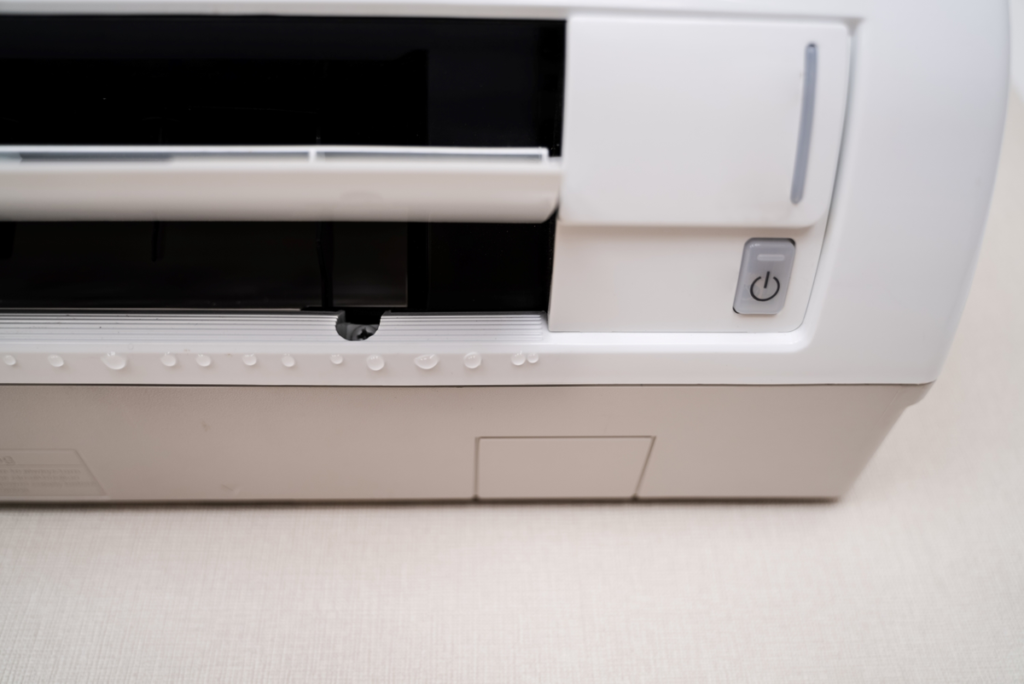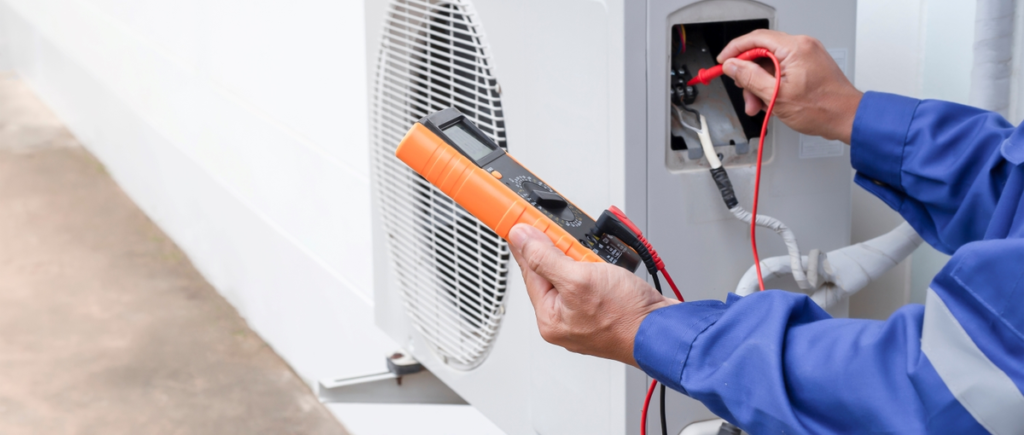Managing a household can be a daunting task. From maintaining the lawn to ensuring the plumbing is in top shape, homeowners have their hands full. Here are some key maintenance tasks to keep track of:
- Regularly inspecting the roof for damage.
- Cleaning and maintaining gutters.
- Checking and replacing HVAC filters.
- Inspecting windows and doors for leaks.
- Ensuring the electrical system is up to code.
When something like your AC starts leaking, it can feel like another major headache. But don’t worry—this guide will answer the question, “Why is my AC leaking?” and what you can do about it. Keep reading to learn more about the issue and how to fix it.
How AC Units Work

To understand why your AC might be leaking, it’s essential to grasp the basics of how an AC unit functions. Modern air conditioners work by cooling the air inside your home through a cycle of evaporation and condensation.
Evaporation
The process starts when warm air from your home passes over the evaporator coils. These coils contain a cold refrigerant that absorbs the heat from the air, causing the refrigerant to evaporate and turn into a gas.
This process cools the air, which is then blown back into your home, providing that refreshing, cool breeze.
Condensation
Once the refrigerant has absorbed the heat, it travels to the condenser coils located outside your home. Here, the refrigerant releases the absorbed heat, condensing back into a liquid.
This release of heat is what you feel when you stand next to an outdoor AC unit on a hot day.
Drainage
During this process, moisture from the air condenses on the evaporator coils and drips into a drain pan. From there, it is directed out of your home through a drain line.
Understanding these steps is crucial for diagnosing why your AC unit might be leaking.
6 Reasons Why Home AC Units Leak
AC leaks can be frustrating, but pinpointing the cause is the first step toward a solution. Here are the most common reasons why your AC unit might be leaking:
1. Clogged Drain Line
One of the most frequent causes of a leaking AC unit is a clogged drain line. Dust, dirt, and algae can build up in the drain line, causing a blockage. When this happens, the water has nowhere to go and starts to overflow, leading to leaks.
To diagnose this, check if the drain pan is full. If it is, a clogged drain line is likely the culprit.
2. Dirty Air Filters
Dirty air filters can restrict airflow, causing the evaporator coils to freeze. When the coils eventually thaw, the excess water may overflow the drain pan.
Regularly replacing your air filter can prevent this from happening and ensure your AC unit runs efficiently.
3. Low Refrigerant Levels
Low refrigerant levels can also cause the evaporator coils to freeze. When the refrigerant is low, the pressure in the AC system drops, leading to freezing coils and potential leaks.
If you notice warm air coming from your vents, it could be a sign of low refrigerant levels.
4. Faulty Installation
Sometimes, the issue lies in the installation itself. If your AC unit was not installed correctly, it could lead to various problems, including leaks.
Ensure your unit is level and that all components are securely connected.
5. Cracked or Rusted Drain Pan
Over time, the drain pan can crack or rust, leading to water leakage. This is especially common in older units.
Inspect the drain pan for any visible signs of damage.
6. Condensate Pump Issues
If your AC unit relies on a condensate pump to remove water, a malfunctioning pump can lead to leaks.
Check if the pump is working correctly and replace it if necessary.
How to Fix A Leaking AC In 6 Steps

Fixing a leaking AC unit can vary in complexity, depending on the root cause. Here are some steps to address common issues:
1. Unclog the Drain Line
To unclog a drain line, you can use a wet/dry vacuum to remove debris. Alternatively, a pipe cleaner or a stiff wire brush can help dislodge the blockage. Regular maintenance, such as flushing the line with a vinegar solution, can prevent future clogs.
2. Replace Dirty Air Filters
Replacing your air filter is one of the simplest yet most effective ways to maintain your AC unit. Check your filter every month and replace it at least every three months. Not only does this prevent leaks, but it also improves air quality and efficiency.
3. Refill Refrigerant Levels
Low refrigerant levels should be handled by a professional. They can identify leaks in the system, repair them, and refill the refrigerant to the appropriate level. This ensures your unit operates at peak performance.
4. Ensure Proper Installation
If you suspect your unit was not installed correctly, a professional HVAC technician can inspect and rectify any issues. This might involve leveling the unit or securing loose components.
5. Replace the Drain Pan
If the drain pan is damaged, replacing it is often the best solution. You can find replacement pans at most hardware stores or consult a professional for assistance. This is especially crucial for older units prone to rust.
6. Fix or Replace the Condensate Pump
If the condensate pump is malfunctioning, it may need to be repaired or replaced. A professional can diagnose the issue and recommend the best course of action. Regular maintenance can extend the pump’s lifespan and prevent leaks.
While some of these fixes are manageable for a diligent DIYer, working with a professional is the best way to ensure the problem gets solved for good. HVAC technicians have the expertise to diagnose and repair issues efficiently, saving you time and money in the long run.
What to Do Next
Understanding why your AC is leaking and knowing how to fix it can save you from unnecessary stress and costly repairs. Regular maintenance and timely interventions can keep your AC running smoothly.
Need professional help? Reach out to Palmetto Heating & Air. Our expert technicians are ready to assist you with all your HVAC needs. Whether it’s a minor leak or a major overhaul, we’re here to ensure your home stays comfortable year-round.
